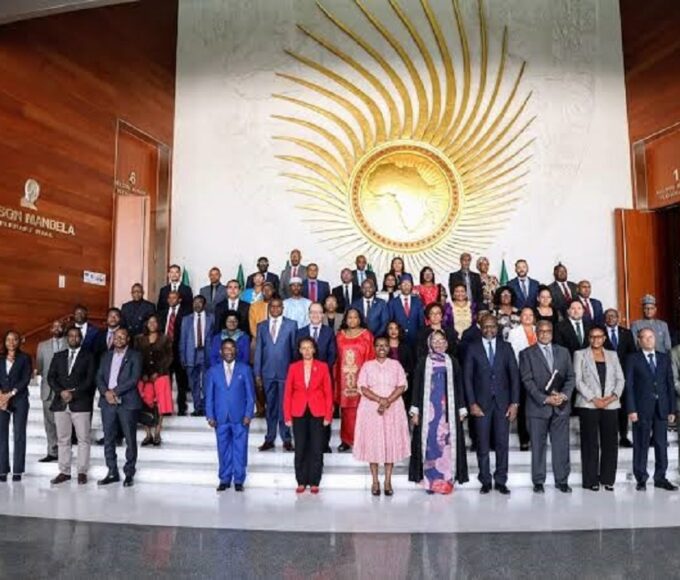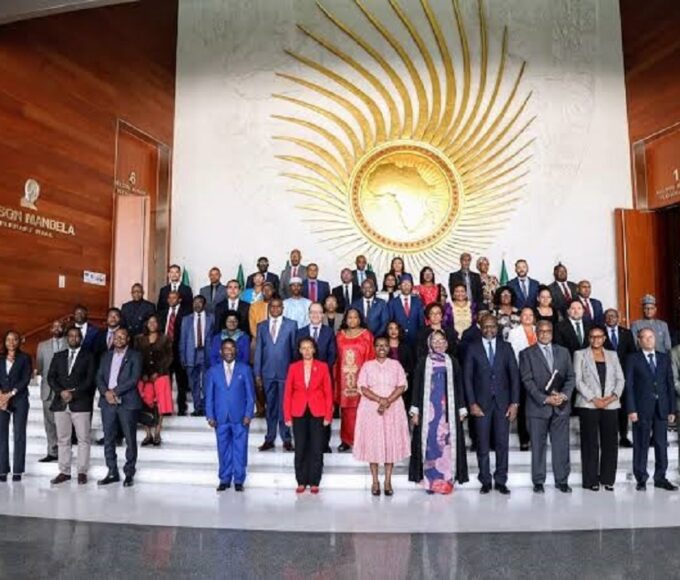Beyond the Kalashnikov: Africa’s Shift Toward Technology-Driven Warfare
Many African countries are deploying AI-powered surveillance systems to enhance law enforcement and combat organised crime.

For decades, Africa’s military landscape has been dominated by a simple yet powerful symbol of conflict: the Kalashnikov AK-47. Since the 1950s, this iconic assault rifle has been the weapon of choice for rebels, insurgents, and state armies alike, shaping the continent’s history of warfare and conflict. Its image has been immortalised in popular culture—most notably in Nicholas Cage’s film ‘Lord of War’—and even on Mozambique’s national flag. The AK-47 has become a symbol of both liberation and oppression, a tool wielded by virtually all factions across Africa’s diverse terrains.
However, recent years have heralded a significant transformation in Africa’s approach to warfare. Moving beyond the traditional firearm, the continent is increasingly embracing advanced, technology-driven military capabilities. From AI-powered surveillance systems to combat drones, African security forces are modernising to confront contemporary security challenges. This evolution reflects a broader recognition that modern conflicts require more sophisticated tools and strategies, prompting a shift from reliance solely on conventional weaponry toward integrated, digital, and autonomous systems.

The Enduring Legacy of the AK-47
The AK-47’s prominence in Africa is rooted in its affordability, durability, and ease of use. Underfunded militaries and non-state actors alike favour it because it provides a reliable means of firepower in diverse environments—from the dense jungles of Central Africa to the deserts of North Africa and the savannahs of the South. Its proliferation has fueled conflicts, empowered insurgents like Boko Haram, and even shaped national identities—Mozambique’s flag, for instance, features the AK-47 as a symbol of revolutionary struggle.
The rifle’s reputation is intertwined with significant historical moments: the assassination of Egyptian President Anwar Sadat, the consolidation of Idi Amin’s regime in Uganda, and numerous urban and guerrilla battles across the continent. Poachers, drug lords, and militant groups all wield the AK-47, illustrating its versatility and symbolic power. Despite its simplicity, the AK-47’s role in Africa’s conflicts underscores a persistent challenge: the inability of under-resourced militaries to access or deploy advanced weaponry, making the humble rifle a practical, if volatile, solution.

The Rise of Technology-Driven Warfare in Africa
While the world’s leading militaries race to integrate artificial intelligence (AI) into their arsenals, Africa’s security forces are adopting a more cautious, measured approach. The continent’s transition toward technology-driven warfare is characterized by the gradual incorporation of AI in surveillance, intelligence, and autonomous systems.
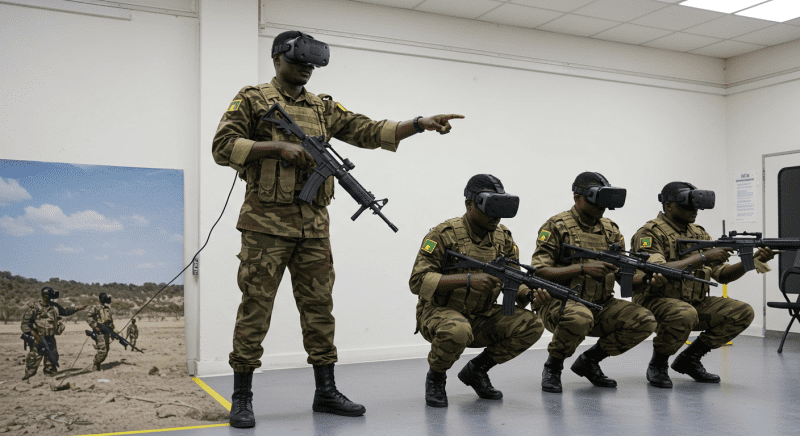
AI in Surveillance and Policing
Many African countries are deploying AI-powered surveillance systems to enhance law enforcement and combat organised crime. For instance, Chinese technology giant Huawei has helped establish advanced surveillance networks in Nairobi, Kenya, and Johannesburg, South Africa. These systems utilise deep neural networks for image classification, predictive analytics, and real-time monitoring, enabling authorities to track criminal activities, monitor border crossings, and prevent terrorist attacks.
In Malawi’s Liwonde National Park, AI-driven software such as EarthRanger helps combat poaching by analysing patterns and detecting upticks in illegal activities. Such systems can distinguish humans from animals, alerting rangers to potential threats while reducing risks to personnel. These applications demonstrate how AI enhances situational awareness and operational efficiency in high-violence environments.
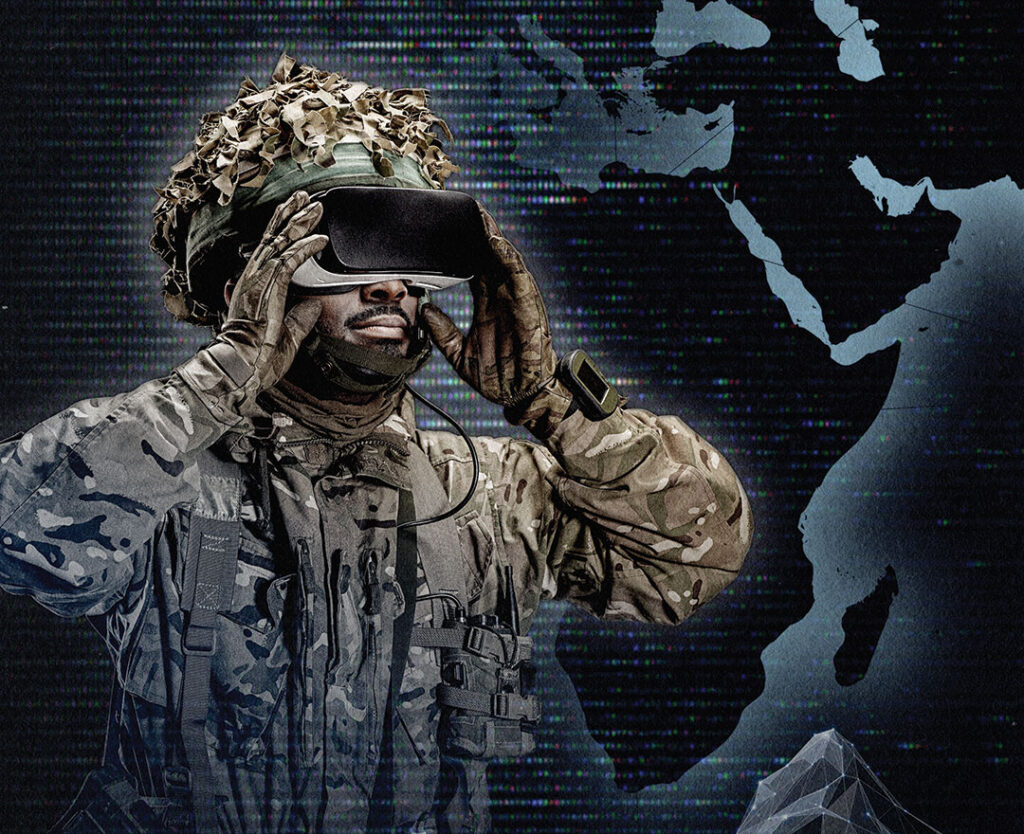
AI in Combat and Autonomous Systems
The development and deployment of autonomous weapons represent a more contentious aspect of Africa’s technological shift. In 2020, reports emerged of Turkish-made STM Kargu-2 drones attacking Libyan forces, with some experts classifying these as lethal autonomous weapon systems capable of selecting and engaging targets without human intervention. Although these incidents are limited, they signal a future where AI-enabled drones and loitering munitions could become commonplace in African conflicts.
Several countries have acquired or ordered advanced drones—Turkey’s Bayraktar TB2, Israel’s Heron systems, and South Africa’s upcoming “N-RAVEN” UAVs—many with AI-assisted “swarming” capabilities. Swarm technology allows multiple drones to coordinate, overwhelm defences, and carry out complex missions. The proliferation of such systems offers tactical advantages but also raises ethical and accountability concerns regarding autonomous decision-making in combat.
AI’s Impact on Security and Conflict Dynamics
AI’s integration into African security operations is reshaping how conflicts are fought and managed. It enhances surveillance, improves target identification, and increases the precision of military actions. However, its impact on the fundamental drivers of conflict—such as poverty, political exclusion, resource disputes, and corruption—remains limited.
Despite technological advancements, armed conflicts in Africa have doubled over the past decade, indicating that AI alone cannot resolve these complex issues. For example, Nairobi’s AI-driven smart city initiatives have not significantly reduced crime rates, which are often rooted in socio-economic factors beyond the reach of technology.
Furthermore, AI’s capabilities are constrained by Africa’s digital infrastructure. With internet penetration below 20% in many conflict-prone regions like South Sudan, Somalia, and the Lake Chad Basin, the reach of AI-powered systems remains limited in the most inaccessible areas. Non-state actors, such as insurgents and militias, often operate beyond the surveillance reach of these technologies, perpetuating cycles of violence.
Risks, Downsides, and Ethical Considerations
The increasing reliance on AI introduces significant risks. Autonomous weapons could be exploited by rogue actors or insurgent groups, potentially leading to destabilisation and escalation of violence. The use of “slaughterbots”—small, autonomous drones capable of mass attacks—has alarmed security experts and human rights advocates, who warn of potential misuse in terror campaigns.
Accountability remains a pressing concern. When AI-driven systems make lethal decisions, questions arise about who bears responsibility—the manufacturer, the deploying state, or the operator. This ambiguity complicates efforts to regulate autonomous weapons and enforce ethical standards.
Cybersecurity threats also escalate as AI systems become targets for hacking and sabotage. AI-enabled cyberattacks could disrupt critical infrastructure—power grids, banking systems, or government networks—posing existential threats to nations unprepared for such assaults.
The Road Ahead: Opportunities and Challenges
Africa’s digital revolution offers promising opportunities. The continent hosts over 2,400 AI-related organisations working across sectors, from agriculture and health to security and governance. Countries like Nigeria, South Africa, and Ghana are investing in local AI startups, fostering innovation, and creating jobs.
In 2018, Mauritius became the first African nation to publish a comprehensive national AI strategy, recognising the technology’s potential to drive socio-economic development. The African Union’s AI for Africa Blueprint (2021) advocates for ethical, inclusive, and continent-specific approaches to AI governance.
However, challenges persist. Data quality and availability remain major hurdles, with many African countries lacking comprehensive, up-to-date datasets necessary for effective AI deployment. Regulatory frameworks are still nascent, and policymakers must balance the promise of AI with safeguards against misuse.
Conclusion
Africa’s journey beyond the Kalashnikov marks a critical evolution in its approach to warfare and security. While the AK-47 symbolises decades of conflict rooted in socio-economic and political complexities, the continent’s embrace of AI and autonomous systems reflects a desire to modernise and adapt to new threats. The future of African conflict will likely be a hybrid landscape—where traditional weapons coexist with advanced technologies, each influencing tactics, strategies, and ethical debates.
Ultimately, technology alone cannot resolve Africa’s deep-rooted challenges. Sustainable peace will require a holistic approach—combining technological innovation with addressing the root causes of insecurity. As Africa navigates this transition, the balance between harnessing AI’s potential and managing its risks will determine whether it advances towards stability or faces new, unforeseen conflicts.
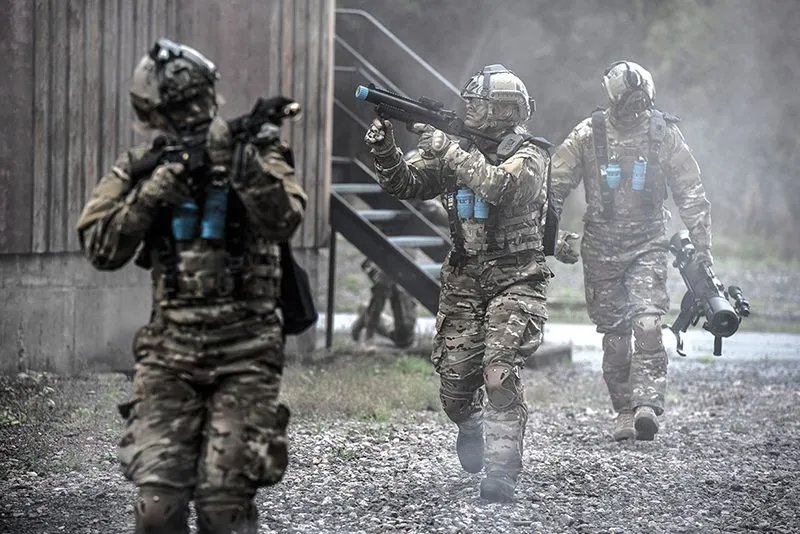

Review Overview
Summary
Vestibulum viverra gravida fringilla. Suspendisse accumsan purus quis augue lobortis quis sagittis
The Pros
Colors Size StyleThe Cons
Expensive Duration quality- Design70%
- Speed80%
- Saving94%
- Features80%
Recent Posts
Categories
- Air & Aerospace17
- Border Security15
- Civil Security6
- Civil Wars4
- Crisis5
- Cyber Security8
- Defense24
- Diplomacy19
- Entrepreneurship1
- Events5
- Global Security Watch6
- Industry8
- Land & Army9
- Leadership & Training5
- Military Aviation7
- Military History27
- Military Speeches1
- More1
- Naval & Maritime9
- Policies1
- Resources2
- Security12
- Special Forces2
- Systems And Technology9
- Tech6
- Uncategorized6
- UNSC1
- Veterans7
- Women in Defence9
Related Articles
RUSSIA’S WAGNER LEGACY IN AFRICA POST-PRIGOZHIN
In the diamond fields of the Central African Republic, Yevgeny Prigozhin’s shadow...
ByKing Richard Igimoh, Group Editor ALOOctober 1, 2025AFRICAN UNION SECURITY SUMMIT CONCLUDES WITH BOLD PLEDGES ON PEACE, REFORM, AND GLOBAL EQUITY
The 38th Ordinary Session of the African Union (AU) Assembly in Addis...
ByKing Richard Igimoh, Group Editor ALOSeptember 29, 2025AFRICAN UNION SECURITY SUMMIT CONCLUDES WITH BOLD PLEDGES ON PEACE, REFORM, AND GLOBAL EQUITY
The 38th Ordinary Session of the African Union (AU) Assembly in Addis...
ByKing Richard Igimoh, Group Editor ALOSeptember 26, 2025General Musa Leads Civil-Military Reset in Nigeria
Under General Musa’s Watch, Nigeria’s Military Reimagines Civil-Military Relations at Landmark...
ByKing Richard Igimoh, Group Editor ALOJune 23, 2025











